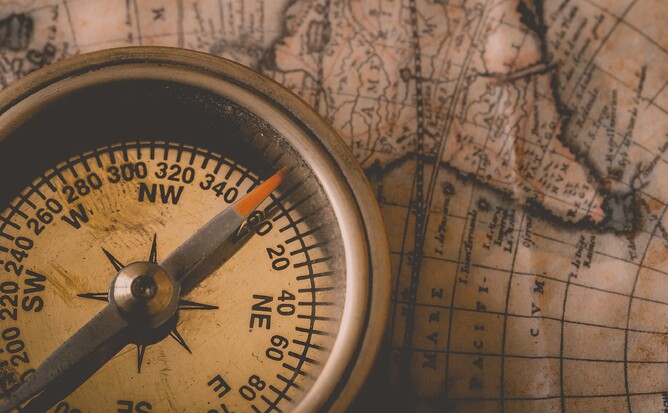Apparently shortly before Peter Drucker died he said, "We are in one of those great historical periods that occur every 200 to 300 years when people don't understand the world anymore, and the past is not sufficient to explain the future."
I find this exciting! I find it exciting because this is when we start to get imaginative and innovative and we stop just accepting the status quo and the pain of staying the same overtakes the pain of uncertainty and change. And stuff gets done!!
It is when we get courageous and brave and push the boundaries of our comfort zones, it is where we question why we do the things we do, the way that we do them and the way that we have always done them.
I have used this story many times to get a point across but i do love it. A young woman is preparing a roast for lunch and her daughter asks her why she cuts the two ends of the roast off and lays them under the roast, the mother stops and thinks about it and says, "you know, your granny always does it and I don’t know why”. Later that day she calls her mother and asks her why she always cuts the ends off the roast and lays them under the roast in the pan. There is brief silence on the other end and she laughs and says, “Actually I am not sure, it is always what your granny used to do, actually I am having tea with her right now, let me ask her”. The mother held the phone to her chest looked over to her mother and asked her “Mum, why did you always cut the ends of the roast off and lay them at the bottom of the roasting pan under the roast?” To which she replied “My roasting pan was too small…”
Bringing this in a little, from a broader perspective, our brains are very efficient and so habits are formed so that we don’t have to use up too much energy. Think of driving a car, when you first start learning, it is tiring remembering how to time all the parts of your body and remember which hand, foot, pedal and gear you should be selecting, all the while watching the road and the things happening on the road. If you have been driving for a few years now, or even months, chances are you were totally unaware of how many times you placed your foot on the pedal or how many gears changes you had. Most of us drive pretty unconsciously (yeah, just let that just sink in).
The thing is, we do this in life too, we live unconsciously, we do things out of habit, because they worked for us in the past. But we are not mean to just survive but to thrive and this is why many people start feeling disharmony, it is because things have become too certain and monotonous. Disharmony comes to us sometime in the form of crisis, which snaps us out of our stupor or we just get to the point of dissatisfaction. As uncomfortable as this it, it is a great place to be in, because you are about to start growing. In my book The Journey from Here to There I give you a tool (a compass) as you navigate your way from being unconscious to aware.
RIM (our compass)
Moving through territory (or not moving) requires you to make decisions. Every step of the journey involves many small, daily decisions. Do you take the road to the left or the road to the right? What is to be gained if you choose one path and not another? Some of our choices don’t make a huge difference in the greater scheme of things, but if we are more aware and intentional when choosing our paths, we can get there more quickly.
To help you identify where you are in your journey, what’s really going on and what you should do next, I use a tool I call RIM - an acronym for Recognise, Investigate and Move. …
Here’s how it works:
• R – Recognise: This is how you recognise the territory you are in. The question here is: What is happening around me? What is my main focus? What is triggering me? Am I in autopilot?
• I – Investigate: This is how you identify what is going on inside of you and what meaning you are attaching to what is happening around you. e question here is: What does what I’m seeing mean to me? Does this make me feel empowered or disempowered and why? What am I afraid of? What am I ashamed of? What is keeping me back?
• M – Move: Here is where you take action and move onto the next part of your journey. At this point you have a decision to make: What am I going to do about this? Who can I talk to to help me move forward?
I encourage you this week, to be more intentional about the things that you do, start to question the status quo, don’t just accept things just because that is the way it has always been done. Life has seasons, the beginning of a year is the best time to sit down and intentional decide what needs to be pruned.
What are you going to start, stop and continue this year?


